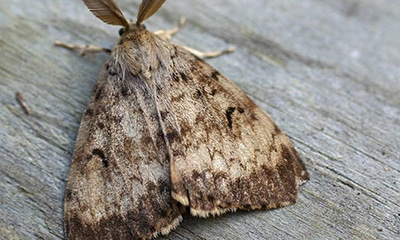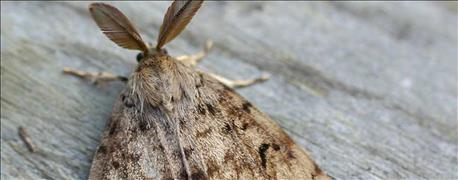February 16, 2016

The Minnesota Department of Agriculture and partner organizations are planning to tackle a gypsy moth infestation three parts of the state this spring.
Related: Palmer Amaranth: Understanding the Profit Siphon in your Field
In anticipation of the treatments, the department is inviting people to learn about efforts at the following open houses:
•Monday, February 22, 5:00 – 7:30 p.m., Ely City Hall, 209 E Chapman Street, Ely
• Wednesday, February 24, 5:00 – 7:00 p.m., Houston County Criminal Justice Center Basement, 306 S. Marshall Street, Caledonia
•Thursday, March 3, 5:30 – 7:30 p.m., Lake County Law Enforcement Center, 601 3rd Avenue, Two Harbors

MDA plans gypsy moth treatments in three communities
Ranked among America’s most destructive tree pests, gypsy moth has caused millions of dollars in damage to forests as it has spread from New England to Wisconsin in recent decades. Gypsy moth caterpillars can defoliate large sections of forest. The pests are common in Wisconsin and are now establishing themselves in Minnesota.
The MDA maintains a monitoring program to watch for start-up infestations, and when an infestation is found, the department conducts aerial treatments to eradicate the infestation before it can spread.
In 2015, the MDA found infestations covering portions of the city of Ely. The department is now developing a treatment plan for an affected area totaling approximately 565 acres. In 2015, the MDA found three infestations in Houston County. The department is now developing a treatment plan for an affected area totaling approximately 5,744 acres.
In 2015, the MDA found an infestation covering an area near the city of Two Harbors. The department is now developing a treatment plan for an affected area totaling approximately 570 acres.
Details of the area can be found by typing in the zip code.
Over the years, the MDA has successfully treated dozens of gypsy moth infestations across eastern Minnesota from Grand Portage to the Twin Cities to Houston County. These successful treatments help postpone the full-scale invasion of gypsy moth, saving local communities and homeowners money and protecting the health of the state’s urban and natural forests.
You May Also Like




